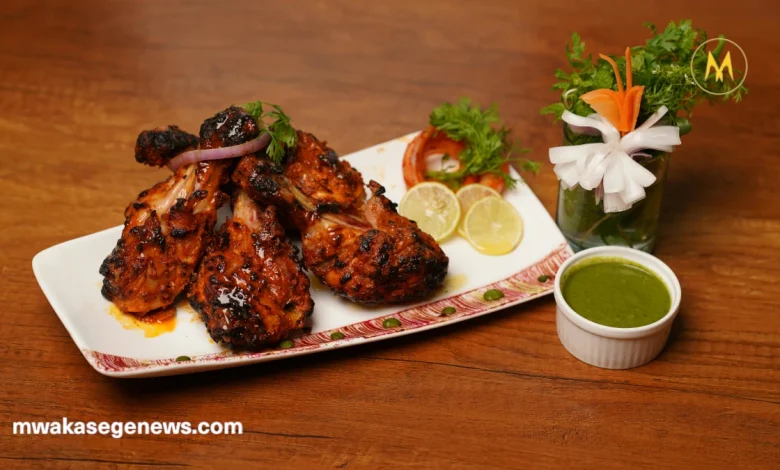Anti-Inflammatory Meal Plan: What to Eat in a Day for Energy & Immunity
A one-day anti-inflammatory meal plan designed to boost energy, support immunity, and reduce inflammation—naturally and deliciously.

Chronic inflammation is often called the silent contributor to many modern illnesses—fatigue, joint pain, and even heart disease. But did you know that what you eat daily can either fight or fuel inflammation?
An anti-inflammatory meal plan isn’t just for those with health conditions. It’s for anyone who wants more energy, better digestion, and a stronger immune system. In this post, you’ll discover a full-day meal plan that promotes healing and vitality—without being complicated or boring.
Why Focus on Anti-Inflammatory Foods?
Our bodies naturally produce inflammation to fight infections and heal injuries. The problem begins when inflammation becomes chronic. Diets high in processed foods, refined sugar, and trans fats keep the immune system in a constant state of alert.
Anti-inflammatory foods do the opposite—they help calm the immune system, reduce oxidative stress, and support long-term health. These foods are typically rich in antioxidants, fiber, omega-3s, and phytonutrients.
Benefits of an Anti-Inflammatory Diet
Before jumping into the meal plan, here are a few benefits of sticking to anti-inflammatory foods:
- Increased energy levels
- Improved digestion
- Better skin clarity
- Stronger immune response
- Reduced joint and muscle pain
- Stabilized blood sugar
A balanced approach makes it easier to stay consistent without feeling restricted.
Morning: Energizing Anti-Inflammatory Breakfast
Meal Idea: Turmeric Chia Oats with Berries
Start your day with a bowl packed with antioxidants, fiber, and anti-inflammatory goodness.
Ingredients:
- ½ cup rolled oats
- 1 tbsp chia seeds
- 1 cup almond milk
- ½ tsp turmeric powder
- Pinch of black pepper
- Handful of blueberries and raspberries
- Drizzle of raw honey or maple syrup
- Sprinkle of walnuts or pumpkin seeds
Why It Works:
Turmeric fights inflammation, while chia seeds and oats provide sustained energy. Berries add antioxidants, and nuts supply healthy fats.
Optional Add-on: A cup of green tea or warm lemon water with ginger to further reduce inflammation.
Mid-Morning Snack: Immune-Boosting Smoothie
Meal Idea: Green Superfood Smoothie
Ingredients:
- 1 cup spinach
- ½ avocado
- ½ banana
- 1 tbsp flaxseed
- 1 scoop plant-based protein powder
- 1 cup water or unsweetened almond milk
- Squeeze of lemon
Why It Works:
Spinach and avocado contain vitamins A, C, and E. Flaxseeds offer omega-3s. This smoothie is light yet energizing—perfect between meals.
Lunch: Anti-Inflammatory Power Bowl
Meal Idea: Salmon, Quinoa & Roasted Veggie Bowl
Ingredients:
- Grilled or baked wild salmon (rich in omega-3s)
- ½ cup cooked quinoa
- Roasted sweet potatoes
- Steamed broccoli or kale
- Sliced avocado
- Drizzle of olive oil and lemon juice
Why It Works:
This combination delivers fiber, protein, and inflammation-fighting nutrients. It also keeps blood sugar stable throughout the afternoon.
Pro Tip: Add turmeric and paprika when roasting vegetables for an extra anti-inflammatory punch.
Afternoon Snack: Crunch & Calm
Meal Idea: Sliced Apple with Almond Butter & Cinnamon
Why It Works:
Apples offer fiber and antioxidants. Cinnamon is known for its anti-inflammatory and blood sugar balancing effects. Almond butter provides healthy fats and protein.
Dinner: Healing and Light
Meal Idea: Lentil & Veggie Stew
Ingredients:
- ½ cup dry lentils
- Chopped carrots, celery, and zucchini
- Diced tomatoes
- Garlic, turmeric, cumin
- Vegetable broth
Simmer until soft and serve with a side of arugula salad dressed in olive oil and lemon.
Why It Works:
Lentils are rich in plant protein and fiber. Garlic and turmeric reduce inflammation. This hearty yet light dinner supports overnight recovery.
Hydration Tips
Hydration plays a big role in flushing out toxins. Aim for at least 8 glasses of water daily. Add cucumber, lemon, or ginger to your water for extra benefits.
Avoid sugary drinks, sodas, or artificial juices. Herbal teas such as chamomile, rooibos, and peppermint are great anti-inflammatory options.
Spices That Fight Inflammation
Don’t underestimate the power of spices. Try to include these daily:
- Turmeric (with black pepper for absorption)
- Ginger
- Cinnamon
- Garlic
- Cumin
They don’t just add flavor—they actively support your immune system.
Supplements That Support an Anti-Inflammatory Lifestyle
While food should come first, these supplements can help:
- Omega-3 fish oil
- Curcumin (from turmeric)
- Vitamin D3
- Magnesium
- Probiotics
Always consult a healthcare provider before starting new supplements.
Final Thoughts
You don’t need a complex diet to reduce inflammation. Small, intentional food choices can lead to significant health improvements over time.
This one-day anti-inflammatory meal plan is simple, flavorful, and designed to energize your body while boosting immunity. Try it for a week and observe how your body responds—you might feel lighter, more alert, and naturally healthier.
Consistency is more important than perfection. Make room for flexibility, listen to your body, and enjoy the healing power of food.
You might also like: 7 Anti-Inflammatory Drinks That Cleanse Your Body and Strengthen Immunity
FAQs
Absolutely. You can replace animal proteins with lentils, chickpeas, tofu, tempeh, and other plant-based options rich in protein and fiber.
In moderation, yes. One or two cups of black coffee per day can provide antioxidants. Avoid sugary coffee drinks.
Some people notice changes in energy and digestion within a few days. For long-term effects, consistency over several weeks is key.
Yes, occasional indulgences won’t ruin your progress. It’s what you do consistently that matters most.
Yes, with proper adjustments for portion sizes and nutritional needs. Always speak with a pediatrician before making major changes.





mjlhnw